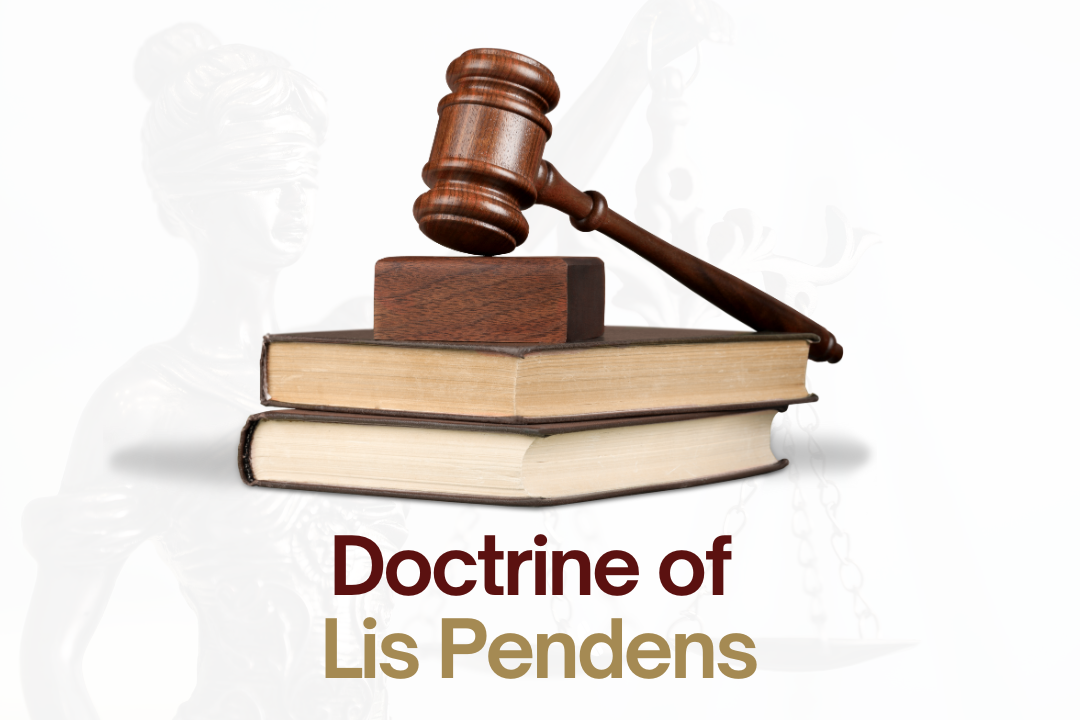Doctrine of Lis Pendens Prevails: Purchasers Bound by Specific Performance Decree Rules Bombay HC

Introduction
When a lawsuit is pending over a property, any transaction involving that property enters murky legal waters. Section 52 of the Transfer of Property Act, 1882 (TP Act) lays down an important principle to deal with such situations—the doctrine of lis pendens. It ensures that no party can defeat the outcome of a suit by transferring the disputed property during the litigation.
In a recent case, the Bombay High Court held that if a person buys a property during the pendency of a suit, they cannot escape the consequences of a court decree related to that property. The ruling once again brought attention to how Section 52 operates to protect judicial proceedings from being rendered meaningless.
The Principle Behind Section 52
The doctrine of lis pendens—which translates to “pending litigation”—is based on fairness and judicial necessity. Under Section 52 of the TP Act, once a legal proceeding involving any immovable property is initiated, the parties to the suit (or any third parties dealing with that property) must wait until the dispute is resolved. Any transfer of that property during the pendency of the suit does not invalidate the transaction but renders it subject to the court’s final decision.
This rule prevents parties from trying to sidestep a lawsuit’s outcome by transferring ownership to outsiders. The principle works in the background, automatically applying to such transfers, regardless of whether the purchaser had actual knowledge of the ongoing case.
Quick Glance at the Case
In Alka Shrirang Chavan & Anr. v. Hemchandra Rajaram Bhonsale & Ors. (Second Appeal No. 396 of 2022), the plaintiff had obtained a decree for specific performance of a property sale agreement. Meanwhile, during the pendency of the suit, the defendants sold part of the same property to third-party buyers.
When the plaintiff sought to execute the decree and take possession, the new buyers tried to resist, claiming independent ownership. However, the High Court rejected their objections, stating that since they purchased the property while the suit was still ongoing, their rights were subordinate to the court’s decree. Their purchase, though legally valid, could not override the earlier legal claim that had been recognised and enforced by the court.
The Court emphasized that allowing such transactions to override the court’s decision would defeat the very purpose of civil litigation. It added that Section 52 exists precisely to avoid such outcomes.
Significance
The judgment is a clear restatement of the settled legal position under Section 52. It sends a strong signal to prospective property buyers: conduct thorough due diligence before buying immovable property, especially check for any ongoing litigation or disputes.
If a buyer chooses to go ahead with the purchase despite the pendency of a lawsuit, they do so at their own risk. The sale won’t be void, but the buyer would have to accept whatever decision the court ultimately reaches in that case—even if it means losing possession of the property.
The ruling also reinforces the importance of executing court decrees without interference. Courts cannot allow litigation to become meaningless simply because the subject matter changed hands mid-way.
Conclusion
The Bombay High Court’s judgment serves as a strong reminder of the continuing relevance of the doctrine of lis pendens in property law. Section 52 of the Transfer of Property Act is not a mere procedural safeguard—it is a vital public policy tool that preserves the authority of the courts.
Purchasers should be extremely cautious while acquiring properties involved in ongoing disputes. A decree passed later—especially one for specific performance—will override such transfers. This ruling doesn’t create new law, but it powerfully reinforces an existing one: during a lawsuit, the property involved is essentially “frozen,” and anyone dealing with it must accept the consequences.
By entering the email address you agree to our Privacy Policy.